#the other post really blew up this will be its less successful cousin
Text

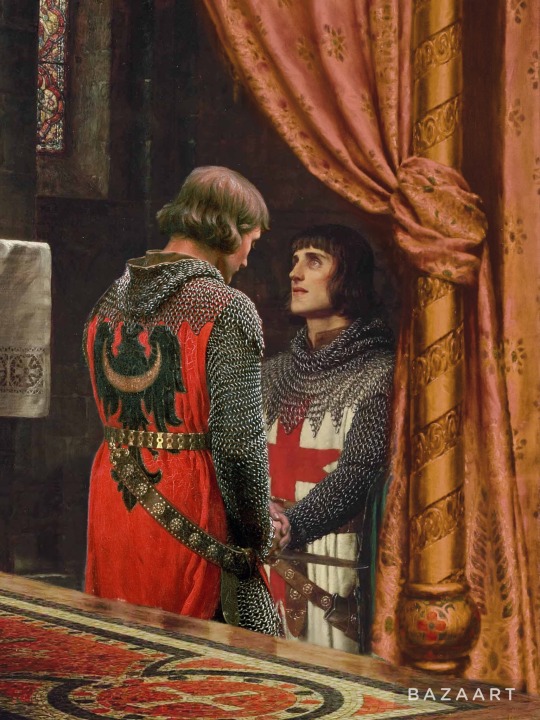
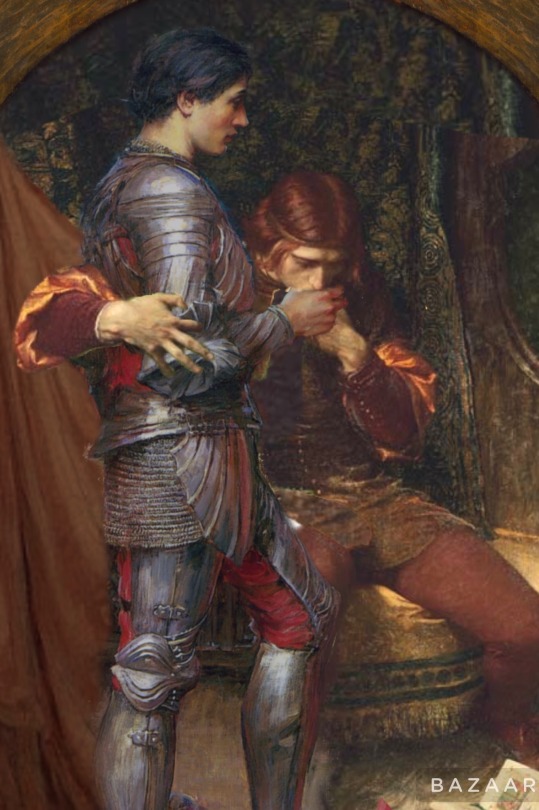
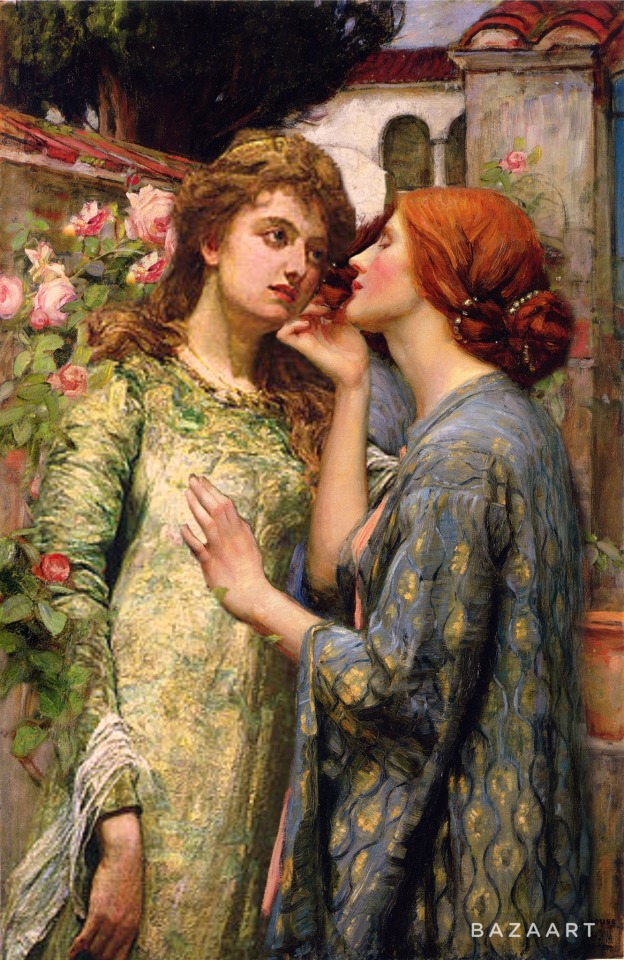

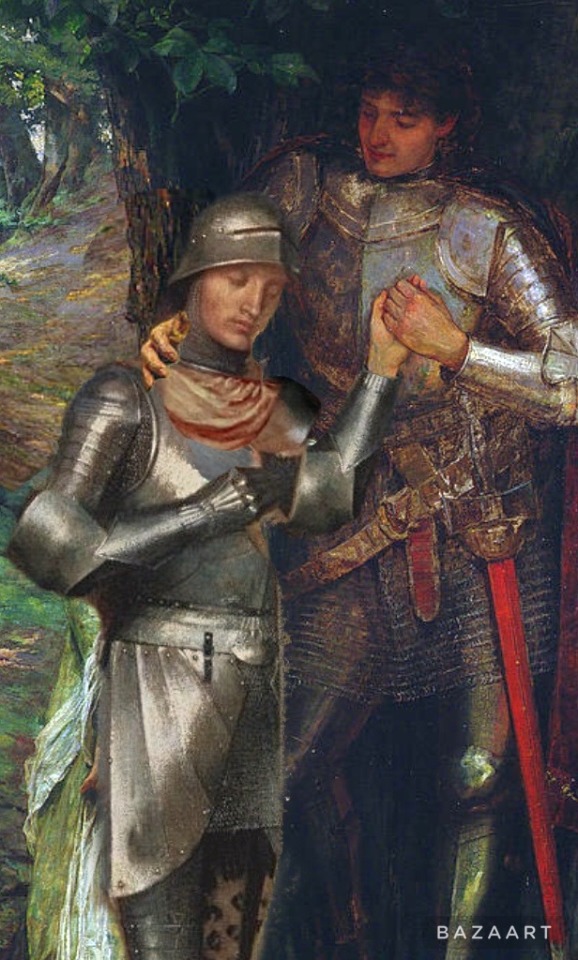
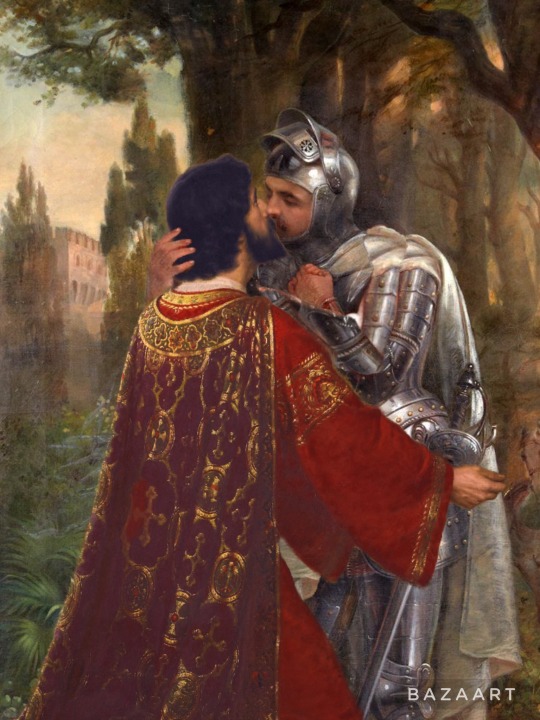
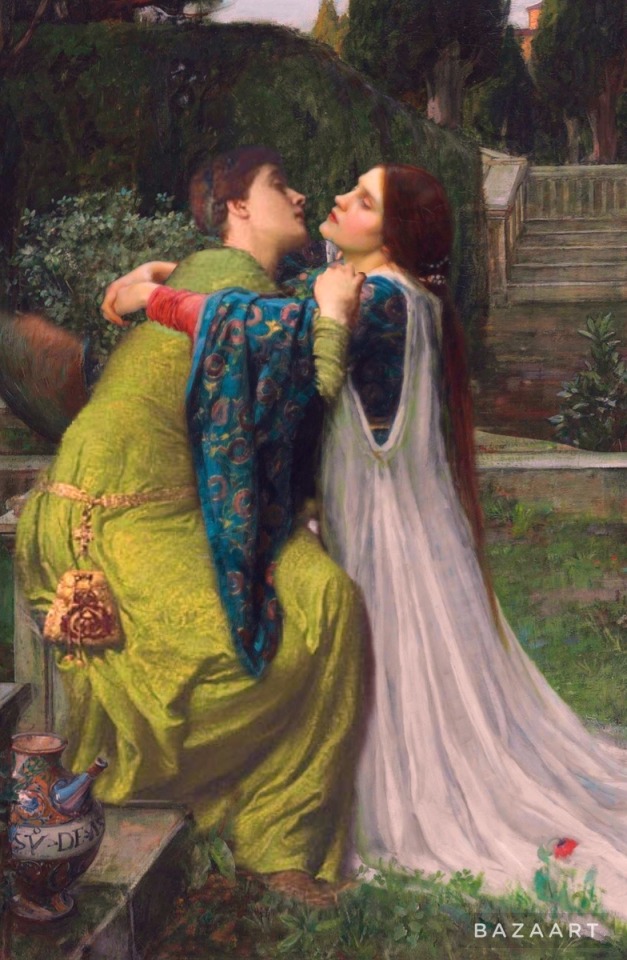
gay knights and dames collages part two
#gay knights#knightcore#knight x knight#arthurian legend#medievalcore#john william waterhouse#edmund blair leighton#lesbian dames#pre raphaelite#decidedly less so this time around#uuh what tags did I use last time#the other post really blew up this will be its less successful cousin#although there are some real gems in here not to brag lmao#anyways I was feeling so many knight feelings that I started historical fencing#again I did this on my tiny phone at work so be nice i know they’re wonky#the hardest part is finding head rotations that actually work#also since people mentioned a lack of lady knights nothing is stopping the ones in armor from being lesbians be creative
17K notes
·
View notes
Text
How F9 Brings Back Justice for Han and Asian Inclusion
https://ift.tt/3hakkfH
This article contains F9 spoilers.
One thing is for certain about the Fast and Furious film franchise—it has been a wild ride. Other aspects of the Fast Saga are less certain. Although the F9 title definitively labels the latest film as the ninth installment, it’s actually the 10th film. Or the 11th. You could even say the 12th if you include the short film. It depends how you want to count it. For a franchise laden with car chase clichés, the Fast Saga makes a lot of long, winding detours.
Consider how these movies treat death. Letty (Michelle Rodriguez) set the precedent by ‘dying’ back in Fast & Furious (aka Fast & Furious 4) only to return in Fast & Furious 6, working for the other side. Coincidentally, at the end of that film, there was a major reveal about Han (Sung Kang). The character was introduced in the third film in the series, The Fast and The Furious: Tokyo Drift, but dies about three quarters of the way through the film. Yet he then reappears in the next three Fast and Furious movies, which were set before Tokyo Drift. The circumstances of his death were clarified in Fast & Furious 6. Jason Statham’s Deckard Shaw killed Han. Now those events have been clarified even more in F9, thanks to returning director Justin Lin. As it turns out, Han didn’t die at all.
F9 is the fifth Fast and Furious film directed by Lin, and by design, Han Jue’s story arc is the central thread for all five Lin installments. Tokyo Drift was Lin’s first Fast film, as well as the franchise’s sharpest turn. It was almost an entirely new cast in a new setting. Lin stayed on to direct the following three installments. To keep Han’s story going, he shifted gears and jumped back in time. Just like with Star Wars, Fast & Furious through Fast & Furious 6 comprised a prequel trilogy, so the order in which the Fast Saga films were released doesn’t match the story’s timeline. The second film, 2 Fast 2 Furious, is followed chronologically by the fourth, Fast & Furious. The next two are in order: Fast Five followed by Fast & Furious 6. Then comes the third release, Tokyo Drift where Han dies. Fast & Furious 6 and Tokyo Drift take place more or less at the same time. Even the beginning of Furious 7 overlaps with the final events of Tokyo Drift.
After stepping away from the franchise for its seventh and eight films, Lin is back in the driver’s seat in F9, which is why Han is also back. However, Han has always been riding with Lin, even predating his involvement in Fast and Furious lore…
High School Han
In 2002, Lin directed the critically-acclaimed Better Luck Tomorrow. That film also starred Sung Kang in the role of Han. It was a story about four overachieving Asian teenagers who start selling cheat sheets and subsequently fall into the gangster lifestyle of drugs and crime. It was loosely based on the murder of Stuart Tay. Tay was an Asian teenager who was killed by his fellow high schoolers when they thought he would betray a computer heist they were planning. The murderers were college-bound with Ivy League potential, and the story was branded as “the honor roll murder” by the Orange County register. In Lin’s interpretation, Han is one of the murderers.
Widely hailed as a benchmark film for Asian-American representation, Better Luck Tomorrow won the Grand Jury Prize at Sundance where it was rigorously celebrated by Roger Ebert, which led to MTV acquiring it.
When Lin took on Tokyo Drift, he wanted to add a cool Asian character into the mix. He tapped Kang to reprise the role of Han, albeit an incarnation of Han that was tailored to the franchise. The Better Luck Tomorrow Han is young and brash. Han is a teenager, although Kang was 30 he first played him. In Tokyo Drift, Han is older and wiser, a mentor to the film’s protagonist Sean (Lucas Black). Nevertheless, there are connections that make the character whole. The Better Luck Tomorrow Han is a chain smoker. In Fast Five, Han’s girlfriend Gisele (Gal Gadot in her first feature film). She attributes Han’s constant need to occupy his hand to being a former smoker. Tokyo Drift was only four years after Better Luck Tomorrow but the character of Han aged considerably.
Why Han Matters
The Fast Saga currently ranks as the seventh highest grossing film franchise in the world. And unlike the other top-earners, these movies were arguably the most diverse and inclusive from the onset. While the MCU has Black Panther and the upcoming Shang-Chi and the Legend of the Ten Rings, and Star Wars introduced Finn (John Boyega) in its third trilogy, those casts remain predominantly white. In fact, the top 25 top grossing global franchises are all led by white casts. Fast and Furious is the exception. This makes Han the most prominent Asian character in a Hollywood franchise in the world.
What’s more, Han is cool. Until very recently, most Asian Hollywood roles were stereotypical or tokens. Han a richly developed character, even if Better Luck Tomorrow is disregarded. In Tokyo Drift, he’s a wealthy elite street racer with his own garage packed with awesome cars, attached to a club where he’s surrounded by gorgeous women. That was an unprecedented role for how Asian characters were presented in mainstream Hollywood entertainment in the 2000s.
Han’s relationship with Giselle is also extraordinary. While there is a long cinematic history of white men hooking up with Asian women, it was extremely rare for an Asian man to kiss white woman in Hollywood cinema. Han and Giselle become an item in 2009 with Fast & Furious. The following year, it was a huge deal for Jackie Chan’s interracial kiss with Amber Valletta in The Spy Next Door.
Jackie claimed it was his first onscreen kiss and he was already well past a hundred films to his credit at that time, although most of them were China-made. Han got to snog Wonder Woman onscreen before anyone else, including Chris Pine, and if that’s not cool, what is?
Lin carried another actor over from Better Luck Tomorrow. Jason Tobin played Virgil Hu, Han’s cousin and another one of the murderous teens. Virgil is the biggest punk of the gang. In Tokyo Drift, Tobin plays Earl Hu, one of Han’s friends and a master mechanic. Is the Hu surname a coincidence? Not likely for Lin. Tobin also appears as Young Jun in the Bruce Lee inspired TV series Warrior, where Lin is an executive producer alongside Lee’s daughter Shannon. Again Tobin plays a punk gangster. Tobin reprises Earl in F9.
Beyond Hollywood inclusion and representation where Han really matters is global box office. Hollywood was another COVID casualty. During the pandemic, the United States was dethroned as the biggest box office in the world. As of right now, China claims that title. Perhaps this is one reason F9 premiered there first, as well as in other Asian regions along with the Middle East.
Read more
Movies
Fast and Furious Timeline Explained (Including F9)
By David Crow
Movies
Hollywood Execs Are Crediting Fast and Furious with Growing Embrace of Diversity
By David Crow
It’s been out for over a month and has already grossed $203 million in China alone, plus an additional $8.8 million in the other markets at the time of the U.S. premiere. Thanks to this, F9 is already the fourth highest earner in the world in 2021. It is right behind Godzilla v Kong, but both of them are trailing behind two Chinese blockbusters that most American are completely unaware of yet, Detective Chinatown 3 and Hi, Mom.
The Fast Saga’s rise has a lot to do with its international appeal, culminating with winning over Chinese audiences. It was under Lin’s steady hand that the franchise became a global player. Adding Han brought Asian representation to an already diverse cast. Tokyo Drift passed an international milestone where the film made more outside of the U.S. in the foreign markets—$33.9 million more. This disparity widened with each successive movie, so by the time Fast & Furious 6 rolled around, the international earnings accounts for nearly 70 percent of the total box office, and the door was open to that lucrative Chinese market.
Furious 7 was the first of the franchise to be shown in China and blew up there with a record-setting $390 million take, earning the title as the biggest non-Chinese film in the country at the time. That helped to elevate the worldwide box office past $1.5 billion, with over 76 percent of it coming from international earnings. The Fate of the Furious did even better, breaking its own record as China’s top-earning foreign film with $392 million, and the international box office accounted for 81 percent of the worldwide take.
Lin is smart to bring Han back. And if he really wants to appeal to that Chinese market, he’ll boost Virgil Hu’s role in F10. Han is Korean. Hu is Chinese. Tobin has appeared in Chinese films previously, including Jackie Chan’s Rob-B-Hood so the Chinese audience is familiar with him.
Justice for Han
At the end of the previous installment, The Fate of the Furious, Shaw is awkwardly accepted into Dom’s cookout. Fans of Han Jue and the franchise were outraged. How does Han’s murderer become part of the club? This triggered the Twitter movement #justiceforhan. Now that we know Shaw didn’t murder Han, it’s up to Lin to decide what happens in F10, which he is slated to direct next (it still doesn’t resolve Shaw’s acceptance at the barbecue because Dom’s gang still believed Han was dead then).
Perhaps it’s all some grand scheme by Mr. Nobody (Kurt Russell). With the Fast Saga, so much is uncertain, even Han’s name.
For F10, a confrontation between Han and Shaw seems inevitable, especially with F9’s post-credits cameo showing Shaw. Perhaps the next film will finally give enough closure for Shaw to earn his seat at the table, or for Han to banish him from it.
At the end of F9, when the car drives up to fill the empty seat at the barbecue table, it’s uncertain who the driver is. Maybe it’s Jakob (John Cena), Dom’s newly introduced brother in F9. Maybe it’s Shaw coming back for seconds, or maybe Brian O’Conner (although reviving the late Paul Walker digitally again would be tacky now). Maybe it’s even Giselle (sure, Giselle ‘died’ in Fast & Furious 6 but if Gadot came back, just think of how many tickets they’d sell). Fast and Furious is full to twisty turns, like any good car chase. But with Lin in the driver’s seat, Han is sure to get the justice he deserves.
F9: The Fast Saga opened only in theaters on Friday, June 25.
cnx.cmd.push(function() { cnx({ playerId: "106e33c0-3911-473c-b599-b1426db57530", }).render("0270c398a82f44f49c23c16122516796"); });
The post How F9 Brings Back Justice for Han and Asian Inclusion appeared first on Den of Geek.
from Den of Geek https://ift.tt/3jejd1g
2 notes
·
View notes
Text
reading + listening 9.29.20
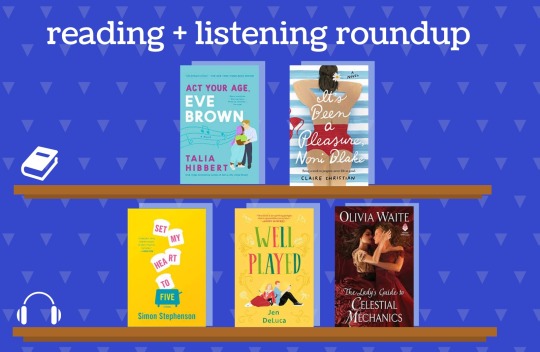
It was another week of soaring highs and middling mediocrity, but fortunately no DNFs. Notably, I’ve been dragging my heels on PIRANESI by Susanna Clarke, which has been sitting on my desk in gorgeous hard cover since release day. You ever want to love a book so much that you’re afraid to actually read it? No, no, me neither. Here’s hoping I get brave this week. In the meantime...
It’s Been a Pleasure, Noni Blake (Claire Christian), eBook ARC (US pub date February 2021). I loved this book so much that I’m already looking forward to owning the aBook once it’s available, just so I can relive the magic in a new way. Here’s my five-star NetGalley review:
I have discovered the antidote to the unmitigated disaster that is the year 2020, and it is IT'S BEEN A PLEASURE, NONI BLAKE. I inhaled this book in under 24 hours and feel soul-satisfied in a way I forgot existed. NONI BLAKE is a rom-com that's so much more than a rom-com; it's as much a character study as LESS and as much a travelogue as WILD, with the sweetness of Mhairi MacFarlane, the delicious heat of Sally Thorne, and the humor of every best friend you've ever gotten drunk with. It is, in a word, perfect.
When I say this book has it all, I am not kidding. In it, you will find:
- an average-bodied woman finding sexual empowerment and body positivity
- a Scottish book boyfriend for whom you do not need to travel through time
- healthy adult friendships
- A+ Bechdel Test score
- adventurous, consensual sex that is at times hilarious and at other times really, really hot
- situational comedy that will legitimately make you laugh out loud
- adults who talk openly about their feelings in an authentic, mature way
- portrayals of grief that range in severity from mourning the loss of an unborn child to coming to terms with years of self-criticism and negativity
- rich, descriptive prose that does not drag down pacing
- excellent plotting, perfectly balanced with the protagonist's complex internal journey
...the list goes on. This book is joy exemplified. I can't wait to give it to every woman I know. My only complaint is that the world needs this book immediately to inoculate us against the tidal wave of awfulness bombarding the globe, and yet it won't be released until 2021.
Notably, Australian readers have access to NONI BLAKE as of... today (!), so if you happen to be reading this in Australia, please do yourself a favor and buy this book immediately. And if there’s someone you especially like elsewhere in the world, maybe box up a copy and spread the love.
Act Your Age, Eve Brown (Talia Hibbert), eBook ARC (pub date March 2021). I know, I know -- how many contemporary romcoms with the exact same title structure can I read in a single week? Real answer: 2. But based on how fabulous both these titles were, I’m open to more. Here’s my four-star NetGalley review:
I've decided it's entirely impossible to read the Brown Sisters series without feeling amazing. Hibbert's writing is so smart, funny, and full of A+ banter -- not to mention scorching-hot heat -- that it almost feels like we don't deserve her books' nuances, diverse representations, and patriarchy-shaking feminism.
But we do deserve it, actually, and it's all there in ACT YOUR AGE, EVE BROWN.
If at first Eve seems flighty and difficult to connect with, don't discount the intentionality of her characterization. In a tidy narrative trick, Hibbert gives us the very experience that defines many of Eve's friendships: while the youngest Brown sister may have made a great first impression in Chloe and Dani's books, her flightiness feels off-putting once she takes center stage. But sticking with Eve -- instead of pushing her to the margins of our two-person social circle -- has a massive pay-off, as she soon reveals herself to be intensely focused on helping others, spreading joy, and baking delicious cake. It's a side of Eve too many of her "friends" never get to see -- but Reader, we do. And it turns out, Eve is a wonder.
Many of Eve's quirks align with behaviors on the autism spectrum; while Jacob's autistic presentation is perhaps more conventional, Eve's traits are equally validated by Hibbert's sensitive, nuanced treatment of the disorder. Romance + autism usually means antisocial behaviors, rigidity, and/or Asperger's-like presentation (The Kiss Quotient/Bride Test, The Girl He Used to Know, The Rosie Project... the list goes on). But ACT YOUR AGE explores the all important "spectrum" side of "autism spectrum disorder," and urges us to resist believing we understand what these labels mean just because we understand one small aspect of a very large picture.
All of this happens while a truly compelling, heart-melting romance unfolds. Eve and Jacob are incredibly fun to watch, and Hibbert keeps things moving at a lovely clip. I especially appreciated her resistance to the "h/h have to spend totally unnecessary time apart after an argument/misunderstanding" trope in Act III, which is a convention I would happily see go the way of the dinosaur.
Fair warning to your TBR pile: If you don't reread Chloe and Dani's books prior to picking up ACT YOUR AGE, EVE BROWN, you're going to want to afterward. There's simply no other way to maintain the rosy glow of post-Hibbert reading.
Finally, I'm predicting here and now that Mont, Alex and Tess are the next sibling trio to get the Hibbert treatment. (Please? Like...PLEASE please?)
Set My Heart to Five (Simon Stephenson), aBook (narr. Christopher Ragland, Rachael Louise Miller, Lance C. Fuller). If you combined the signature humor/love combo of David Nicholls, the deeply felt nostalgia of Ready Player One, and the bots-with-feelings hypothesis of Spielburg’s AI, you might come close to understanding what makes SET MY HEART TO FIVE so good. In the year 2054, the world has taken some unexpected turns: humans have accidentally locked themselves out of the internet, Elon Musk blew up the moon (also accidentally), and humanoid bots have been integrated into society as second-class pseudo-citizens. We meet Jared -- bot, dentist, cat-owner -- who has begun to experience curious malfunctions. With a friend’s help, and a heaping dose of old movies, Jared realizes he can feel real emotions. He resolves to journey west to Hollywood, where he’ll write a movie that changes the way humans view bots and paves the way for his bot brothers and sisters to enjoy the full range of human experience.
Jared’s explanations of human behavior provide a satirical commentary on our curious, often contradictory behaviors (”Humans. I cannot!”). Since films from the pre-bot age figure so prominently in Jared’s emotional awakening, that same satirical analysis is applied to movie synopses, which are rendered with necessary frequency but occasionally feel like overkill. The book relies heavily on a lovely trick of narrative reciprocity; Jared is on an archetypal hero’s journey, even as he strives to write a formulaic screenplay according to the “golden rules” of the fictitious script expert, R.P. McWilliams. But SET MY HEART TO FIVE never feels hackneyed, and in more than one way proves the rule that great stories are all in the telling.
With the innocence and clarity that can only come from being something of a stranger in a strange land, Jared embraces his existence with infectious enthusiasm and charm. It’s virtually impossible not to cheer for his success, even as we’re warned again and again that a great story will “eff us in the heart” at its conclusion. Audio is brilliantly narrated by Christopher Ragland, who manages to imbue the bot cadence we expect with believable nuance and big style.
Well Played (Jen DeLuca), aBook (narr. Brittany Pressley). I’ve got bad news for fans of WELL MET: If you wondered whether your enjoyment of Deluca’s ren-faire romcom debut of 2019 was due in large part to the book’s setting -- and more specifically, the way h/h’s interactions at the faire advanced the storyline -- the answer is yes. And why is that bad news, you ask? Well, because WELL PLAYED has none of the crackling Emily/Simon tension that carried the first book through its narrative stumbles. In book 2, the glacially slow Act I relies heavily on Stacy’s recitation of what makes her life humdrum, and a long series of email exchanges we *know* are coming from the conspicuously introduced Daniel -- even though Stacy, apparently suffering a traumatic brain injury, convinces herself it’s idiot playboy (and Daniel’s cousin) Dex. Sorry not sorry for the “spoiler,” which is impossible not to see coming from many miles away. Once this pseudo-conflict is resolved, the book boils down to situational fluff: a wedding, a squeaky mattress, the literal number of pumpkin spice lattes Stacy drinks over the course of a month. If it sounds like this is not a plot, that’s because it isn’t. The romance is low-stakes, the “uncrossable divide” that eventually separates h/h is the width and depth of a puddle, and the last third of the book is pretty much solely devoted to setting up a Mitch/April romance in book 3.
Notably, I found references to Stacy’s body-consciousness extremely strange. If we want to normalize average-sized women in romance, maybe we do that by not including, apropos of literally nothing, how “unflattering” woman-on-top sexual positions are?! Stacy is not characterized by self-consciousness, so the moments when her interiority veers toward self-criticism don’t feel necessary. I’m not saying these aren’t authentic thoughts and feelings plenty of women have, but an editor should have pushed DeLuca to answer the question to what end? Why include body hyperawareness in the precise moments when it appears? Like too much of the prose in WELL PLAYED, these inclusions felt like word-count boosting instead of dynamic character development or plot production. Sad as I am to say it, this book was a missed opportunity that shows the danger of rushing book 2 to market.
The Lady’s Guide to Celestial Mechanics (Olivia Waite), aBook (narr. Morag Sims). This book has been on my radar since its publication last summer. Gorgeous cover aside, I’m always here for diverse historical romance. Sadly, for me, the external stakes here were simply too low, and relied overmuch on the baffling revelation that men -- especially in this historical moment -- underestimate and undermine women. I never felt discernible chemistry between Lucy and Catherine. This could be due, in part, to Morag Sims’ narration, which pitches Catherine’s voice in a low, husky range that accentuated the women’s age difference. From the outset, we learn that Catherine is the widow of one of Lucy’s father’s colleagues; while Lucy is the more sexually forward woman in this partnership, there’s something a little An Education about the whole arrangement.
On my radar this week:
Piranesi (Susanna Clarke)
A Deadly Education aBook (Naomi Novik)
We Can Only Save Ourselves ARC (Alison Wisdom)
Angel in a Devil’s Arms (Julie Anne Long)
The Project ARC (Courtney Summers)
The Love Square ARC (Laura Jane Williams)
#book review#ebooks#audiobooks#amreading#the lady's guide to celestial mechanics#well played#act your age eve brown#it's been a pleasure noni blake#set my heart to five
0 notes